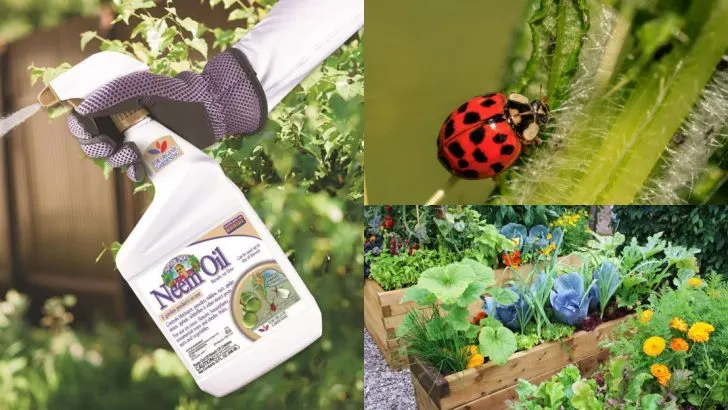Aphids are tiny, green nightmares with legs. One day, your garden’s thriving. The next? It’s a sticky, curling mess of chewed leaves and silent destruction. These sap-sucking freeloaders don’t knock—they invade. But before you reach for the chemical cavalry, stop. There’s a better way. A gentler way. One that doesn’t poison the very soil you’re trying to protect. From garlic sprays to ladybug reinforcements, we’re diving into real, effective, non-toxic solutions that fight back—hard. Because your garden deserves to flourish, not just survive.
Neem Oil Spray
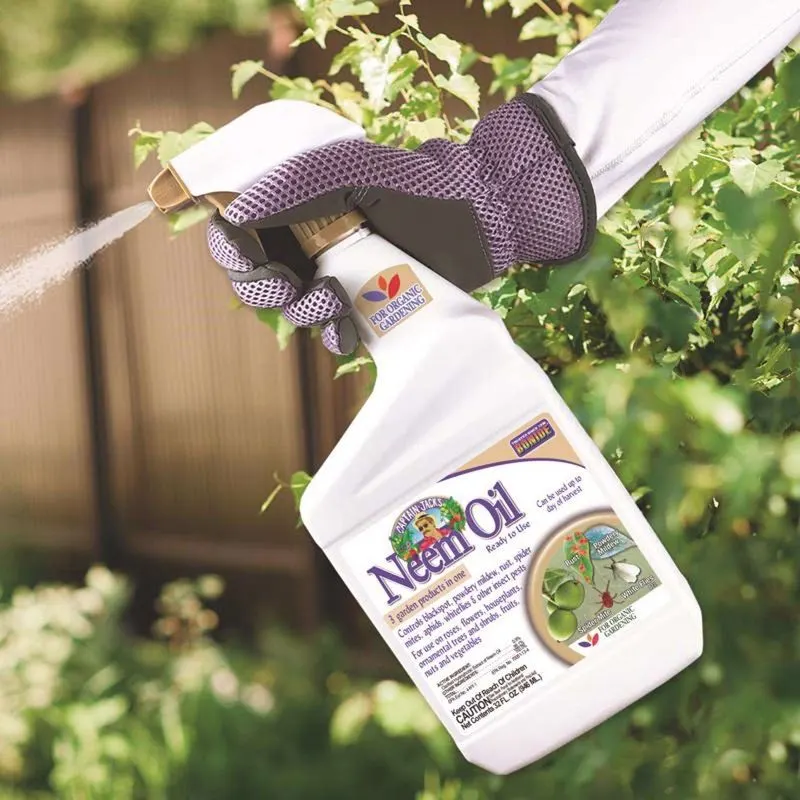
Renowned for its pest-repelling qualities, neem oil is a gardener’s best friend against aphids. By interfering with insect hormone systems, it disrupts their growth and reproduction. A simple mixture with water and a bit of mild soap creates an effective spray. For best results, apply in the morning or evening when bees are less active, safeguarding these pollinators. Regular application every 7-10 days keeps aphids at bay. This oil not only protects plants but also adds a glossy sheen to their leaves, enhancing their appearance.
Ladybugs as Natural Predators
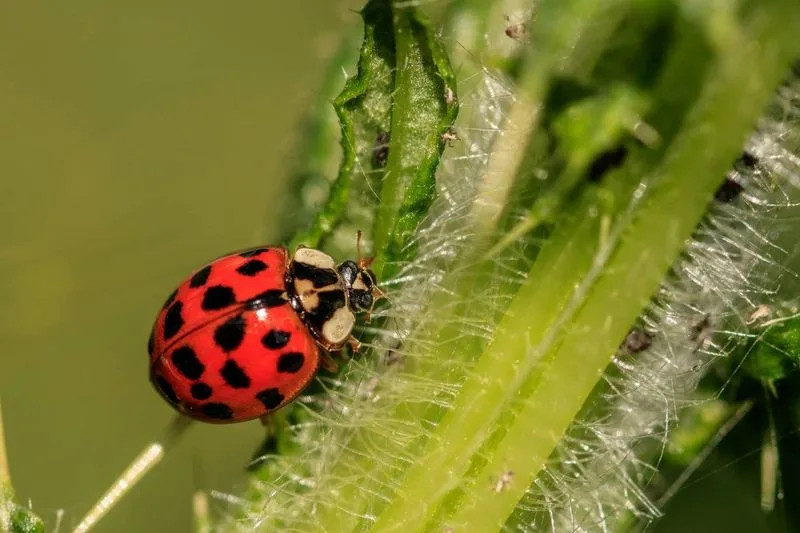
Ladybugs, often considered a gardener’s ally, are voracious aphid predators. Introducing them into your garden can drastically reduce aphid populations. These colorful beetles have a voracious appetite for soft-bodied insects. With hundreds of species available, they adapt well to various climates. Releasing them during late afternoon gives them the best chance to settle. Beyond their beneficial role, ladybugs add a splash of color to the garden, making them both practical and delightful companions in your green space.
Companion Planting
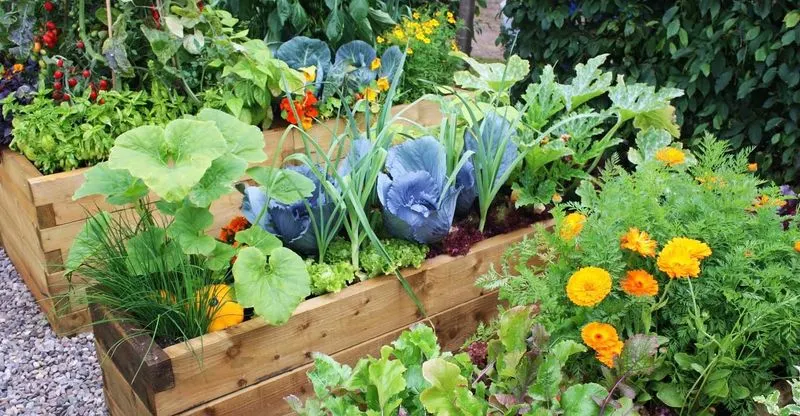
Strategically planting aphid-repelling plants like garlic, chives, and marigolds can protect your garden. These plants release natural chemicals that deter aphids. This method promotes biodiversity and reduces pest outbreaks without chemicals. Choosing a mix of plants that bloom at different times ensures continuous protection. Moreover, it fosters a thriving ecosystem, encouraging beneficial insects. Companion planting is both an art and a science, requiring careful planning but yielding impressive results when done right.
Soap and Water Solution
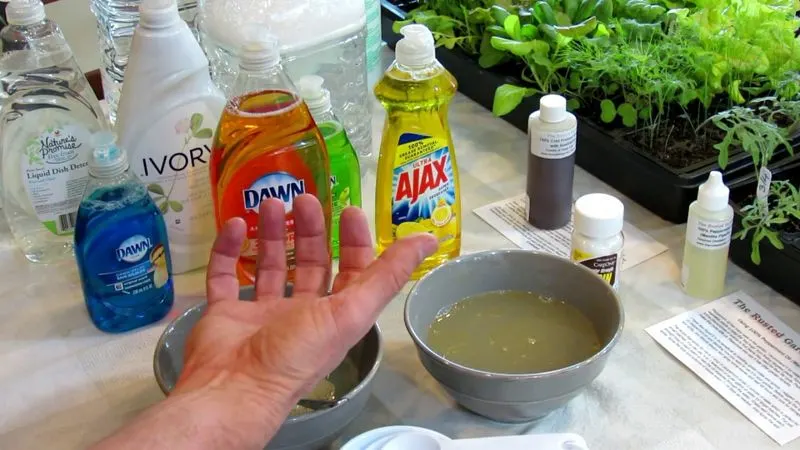
One of the simplest methods to combat aphids is using a soap and water mixture. The soap dehydrates aphids by breaking down their protective outer layer. This gentle approach avoids harming plants, especially when using biodegradable soap. Regularly spray affected areas, ensuring coverage of both tops and undersides of leaves. This solution is cost-effective and easy to prepare, making it accessible for gardeners of all levels. With consistency, it leads to a noticeable reduction in aphid numbers.
Diatomaceous Earth
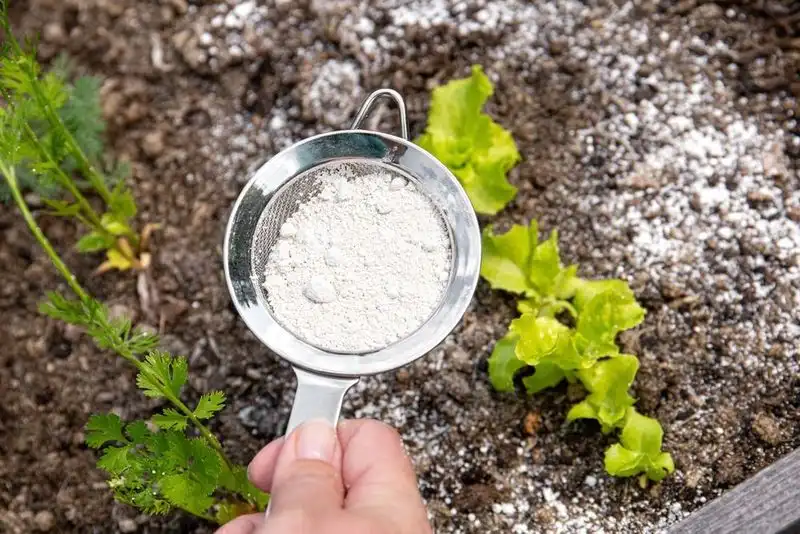
Diatomaceous earth, composed of fossilized algae, acts as a physical barrier against aphids. Its abrasive nature damages insects’ exoskeletons, leading to dehydration. Applying it around plant bases and on leaves deters these pests effectively. Being safe for humans and animals, it’s a favorite among organic gardeners. Regular reapplication, especially after rain, ensures continuous protection. While invisible to the naked eye, its impact on aphids is undeniable, making it a vital tool in organic gardening.
Essential Oils Blend
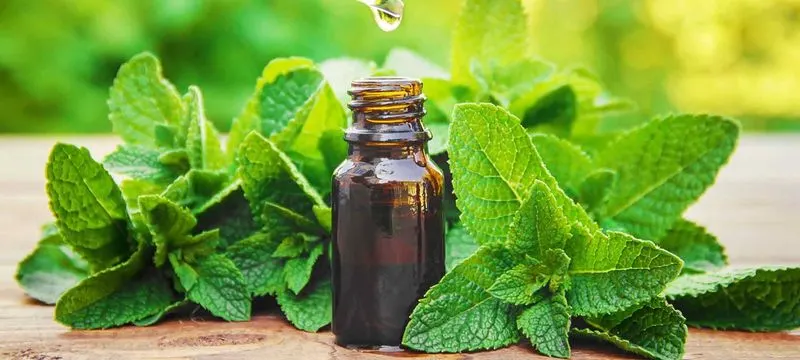
Harnessing the power of essential oils like peppermint and clove can drive aphids away. These oils contain compounds that repel insects naturally. Mix a few drops with water and a mild soap to create a spray. Regular application, especially after rainfall, maintains its effectiveness. This aromatic solution not only protects but also leaves a pleasant scent in the garden. While it’s gentle on plants, it’s tough on pests, making it a multi-sensory approach to aphid control.
Attracting Beneficial Insects
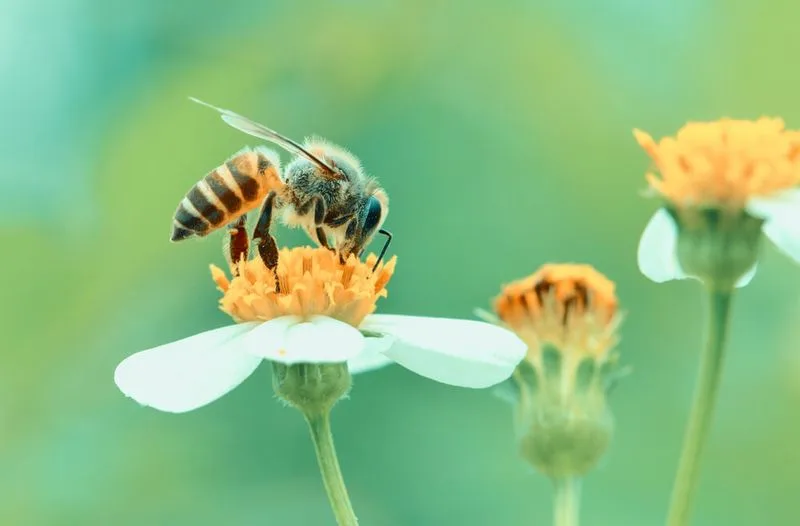
Creating a habitat for beneficial insects like hoverflies and lacewings can naturally reduce aphid populations. These insects are natural predators of aphids. Planting diverse flowering plants ensures that these allies have a continuous food source. This method requires patience but results in a balanced ecosystem. Moreover, it enhances garden biodiversity, creating a resilient environment. By attracting these insects, gardeners can enjoy a lively, harmonious garden free from aphid invasions.
Reflective Mulch
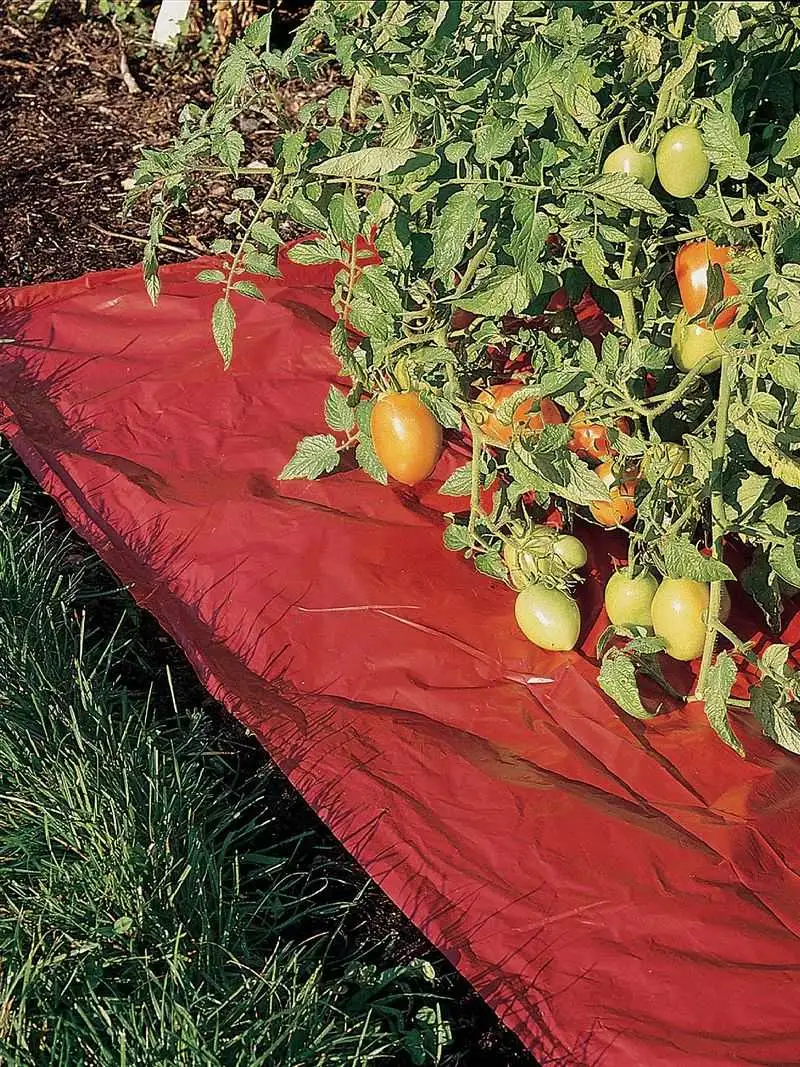
Reflective mulch, often made from metallic materials, confuses and deters aphids. By reflecting light, it disorients flying insects, keeping them away from vulnerable plants. This mulch also conserves soil moisture and regulates temperature, benefiting plant health. Suitable for vegetable gardens, it offers a chemical-free way to protect your crops. Regularly check and adjust the mulch to maintain its reflective properties. Not only does it ward off pests, but it also enhances garden aesthetics with its shiny appearance.
Garlic Infusion Spray
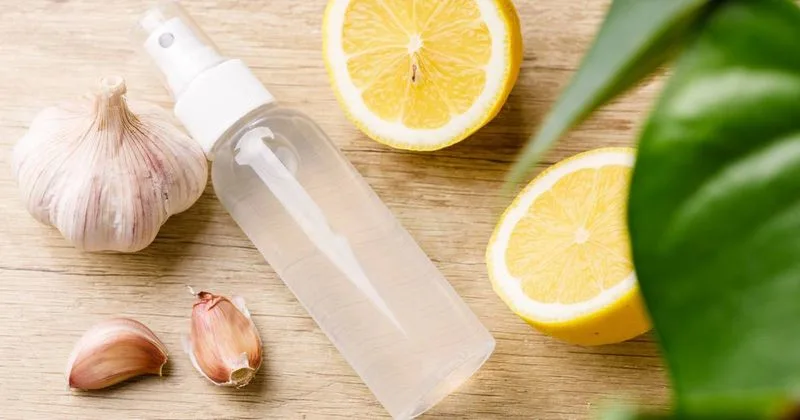
Garlic, known for its pungent aroma, serves as a powerful aphid deterrent. When infused in water, it creates an effective spray. This infusion disrupts the senses of aphids, driving them away from plants. Prepare by crushing garlic cloves and steeping in water overnight. Strain and spray onto affected areas, ensuring thorough coverage. This natural remedy not only protects but also invigorates plants. For those who enjoy DIY solutions, garlic infusion offers a satisfying, hands-on approach to pest control.
Chili Pepper Spray
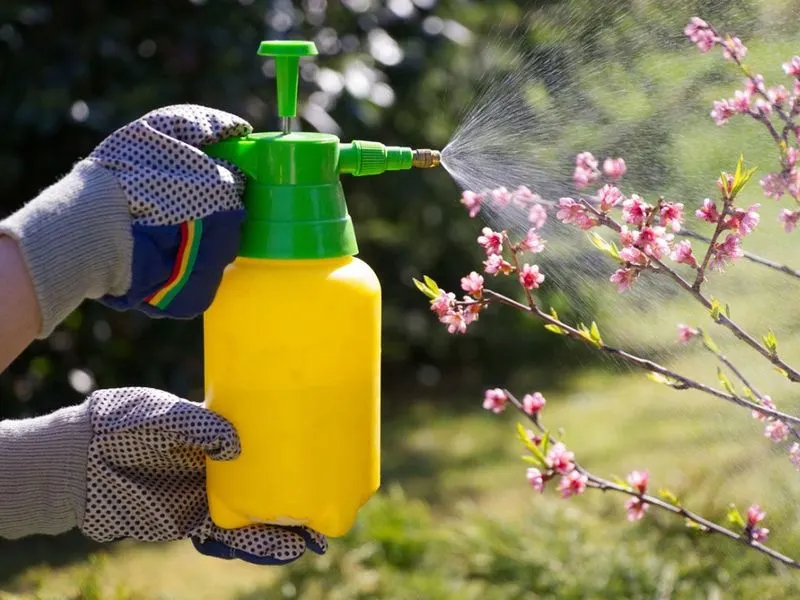
For those who like a bit of spice, chili pepper spray offers an effective aphid solution. Capsaicin, the active component, irritates and repels aphids. To prepare, blend chili peppers with water and let the mixture steep. Strain and spray on affected plants, taking care to avoid beneficial insects. This spicy remedy not only deters pests but also adds a fiery twist to your gardening routine. While plants benefit from its protective qualities, gardeners enjoy the thrill of using homegrown ingredients for pest control.

